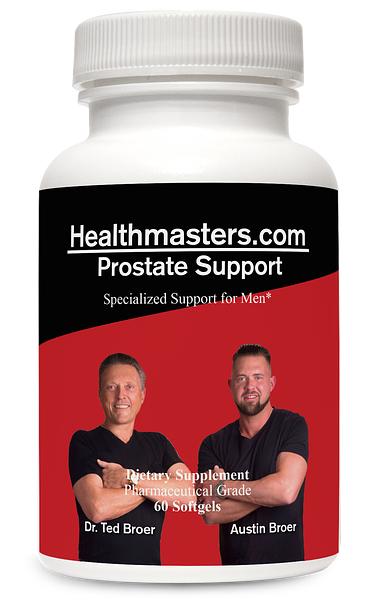Prostate Support
Description
First Time: Take 4 softgels every day for the first 3 days. Then 2 softgels every day thereafter provides continual support for prostate health.
🔥 Reclaim Your Vitality with Prostate Support - A Breakthrough Formula for Men’s Health! 🔥
As men age, maintaining a healthy prostate and urinary function becomes a priority. Prostate Support is the natural solution you’ve been waiting for—packed with powerful ingredients to support healthy prostate function, improve urinary flow, and boost overall vitality. 🌿✨
Why Prostate Support is the Key to a Healthier You 🌟
💥 Supports Healthy Urinary Flow
Tired of frequent, disruptive bathroom trips during the night? Prostate Support is formulated to improve urinary flow and reduce nocturnal frequency, so you can sleep soundly without interruptions. 🌙💤
🔑 Fights Prostate Enlargement
Struggling with an enlarged prostate? This supplement helps shrink the prostate, promoting a healthier urinary tract and better prostate-related hormone metabolism. It's time to take back control of your life! 💪
❤️ A Boost for Erectile Health
Not just for urinary function—Prostate Support also helps with impotency and erectile dysfunction, promoting a stronger, healthier you. Feel your best, inside and out! ⚡
Formulated for Results with Proven Ingredients 🌱
🌿 FLOWENS® Cranberry Powder
This all-natural, full-spectrum cranberry powder supports urinary tract function and improves your quality of life. In just one month, you’ll see noticeable improvements in urinary health and comfort! 🍒
🌿 Saw Palmetto
This time-tested extract is a prostate health powerhouse. Supported by years of research, saw palmetto has been shown to maintain prostate health and enhance urinary tract function.
🌿 Pygeum Africanum
A centuries-old remedy used across Europe, Pygeum promotes healthy urine flow, reduces nocturnal voiding, and improves overall quality of life. 🌍
🌿 Beta-Sitosterol
This plant compound supports healthy urinary function and has been shown to improve urinary flow and quality of life in clinical trials, with long-lasting benefits. 🌱
🌿 Zinc & Vitamin B6
Zinc is essential for prostate health, while Vitamin B6 helps to support optimal prostate function. Together, they protect against DNA damage, ensuring your prostate stays healthy as you age. ⚙️
Your Path to Better Health Starts Here! 🚀
Whether you’re dealing with frequent nighttime trips to the bathroom or simply want to support your prostate’s long-term health, Prostate Support is the natural, effective solution you need! With a blend of science-backed ingredients, this supplement supports prostate health, promotes normal urinary flow, and enhances erectile health—all in one easy-to-take softgel!
💥 Order Now to experience better sleep, improved prostate function, and a renewed sense of vitality. Don’t let age slow you down—take control of your health with Prostate Support today! 💥
Opps
Sorry, it looks like some products are not available in selected quantity.






